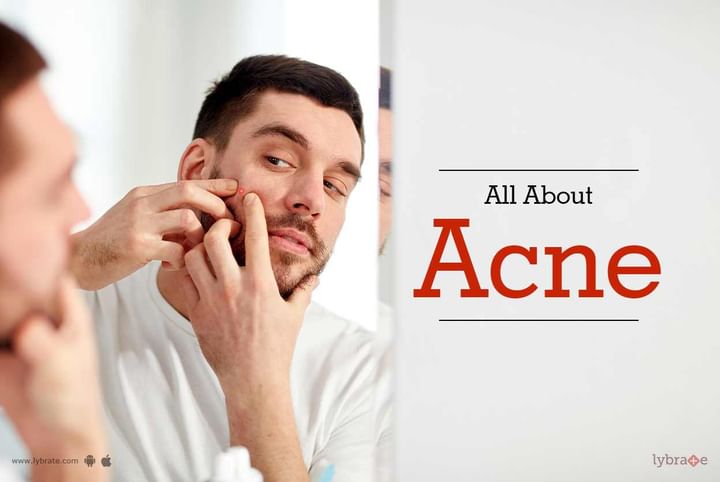Get the App
For Doctors
Login/Sign-up
Last Updated: Jan 10, 2023
BookMark
Report
All About Acne
Dr. Raj Kirit.EpDermatologist • 20 Years Exp.Fellowship In Hair Transplantation, DNB (Dermatology), Diploma In Dermatology And Venerology And Leprosy (DDVL), MBBS
Acne is a condition that affects many people including teenagers and women during their menstruation period. It is characterized by red eruptions that are usually filled with oil, secreted by overactive oil glands in the hair follicles. So what else should you know about acne?
Here are six things you probably did not know about this condition:
- Clogged Pores: Acne signifies clogged or blocked pores that are filled with oil and dead skin cells that have not been cleaned out completely. This mixture of oil and dead skin cells blocks the pores, and ends up creating an eruption of red sores called acne and pimples. There is a chance that bacteria may have joined these two substances as well.
- Over Treating the Skin: The worst thing that you can do is to touch, pick or even apply too many harsh chemicals to your skin during an acne breakout. These things can actually make the problem worse, and even create scars in the long run. The constant use of cleansers and moisturizers can also have a harsh effect on the skin, due to perfume and chemicals present in such products.
- Exfoliation: Using a salicylic acid wash or cleanser first thing in the morning will help in exfoliation, which is a good way to clear those dead skin cells from your skin. This will speed up the process of acne treatment as well, by clearing the pores. Also at night, the use of a medicated cream that contains benzoyl peroxide will help in killing the bacteria, so that there is no infection.
- Two Weeks Notice: Trying new products to treat acne is a great idea. But give every new product at least two weeks before you write it off. Usually, any good product will take at least that much time to affect the acne, and clear the pores in an effective way. So before you start changing cleansers and creams every other day, remember to use the two week thumb rule.
- Menstrual Cycle: Acne, more often than not, happens about five days before and a few days after the monthly menstrual cycle. So watch out for hormonal imbalances, which can cause acne and pimples. Avoid stress around this time too.
- Dermatologist: Visit a dermatologist if regular cleaning and over the counter creams are not working. Persistent acne may turn into infection. Remember to ask your dermatologist for an oil reducing formula too.
Acne is a skin problem that should be treated the right way.



+1.svg)
